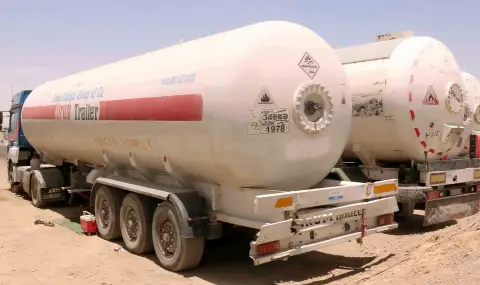Stopping at least part of Iran's oil production due to the risks associated with the escalation of the conflict in the Middle East, it could increase Brent quotes by another 10-15%.
On the evening of October 2, Iran launched a massive missile attack on Israel in response to the assassinations of key figures in the leadership of Hamas and Hezbollah and the Islamic Revolutionary Guard Corps (IRGC). Against this backdrop, the price of Brent crude rose above $75 a barrel for the first time since September 25 after a morning drop below $70 a barrel. This afternoon, the price of Brent exceeded $76 per barrel for the first time since September 3.
„Risks remain high and the war premium has already begun to factor into current oil prices. In August, Iran's oil production stood at 3.7 million barrels per day - the highest estimate since June 2023. A halt to at least some of this volume of production could raise oil prices by another 10-15%” , says Potavin.
At the same time, the expert notes that the impact of the US port workers' strike on quotes is still unclear. According to him, this could indirectly affect global fuel supply chains. Potavin also added that the price of Brent could rise to around $82 per barrel if the “nearest strong resistance level” is crossed. at $75.8 per barrel.
Partner of Kasatkin Consulting Dmitry Kasatkin believes that geopolitics continues to influence oil prices, especially when it comes to a country with one of the largest hydrocarbon reserves - Iran. He stressed that Iran has been gradually increasing oil production in recent years, being one of China's biggest suppliers. “Just like Israeli gas production, although minor, outages could lead to temporary interruptions in the EU gas supply chain. In the event of an escalation of the conflict, oil and gas extraction and processing facilities will be among the first to be attacked and we will see a further increase in prices, the expert explains.
At the same time, the stock market expert "BCS World of Investments" Lyudmila Rokotyanskaya believes that several factors came together last night on the oil market. This, she said, is a blow to US ports that could paralyze half of the country's seaborne supplies, including oil, reducing US oil reserves and exacerbating the situation in the Middle East. “Iran's actions forced the market to reassess current geopolitical risks and factor them into the price of oil. Not all of these risks have a price, however. A bad scenario is, for example, attacks on oil storage facilities. The closure of the Strait of Hormuz, which according to various estimates represents 20-30% of the world's oil flows, is very bad, the expert notes.
According to Rokotyansko, the price of oil, if these options are implemented, can rise even more and quite quickly. “If we focus on technical analysis, then for confident growth, Brent futures should consolidate above USD 75.2 per barrel. This will open the target to USD 80.59 per barrel, she concluded.
